Since Sunday, April 1, more than 2500 followers of the “prophetess” Eusébie Ngendakumana, called “Zebiya”, have got back home. They are happy to meet their families again but remain stuck to their cult that was born in Businde (Kayanza province).
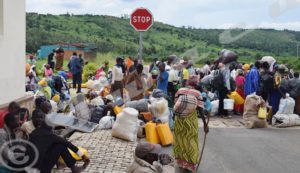
More than 380 of these followers arrived via the Ruhwa border post.
They were numerous and of a different age. Old men who could barely stand up and starving children with bewildered faces, still managed to smile …, a proof of their happiness to be in homeland again. A mood of melancholy could be read on their faces on Monday, April 2, at around 4 pm on the border posts of Ruhwa (Cibitoke) and “Kanyaru haut” (Kayanza).
900 followers of Zebiya were repatriated. The majority of them were women and children (383 via Ruhwa and 517 via Kanyaru haut), who added to another 1604 returnees on Easter.
“The end of the journey,” said all these refugees. They had spent two weeks in Rwanda after fleeing Kamanyola (in DRC).
According to Dieudonné Ngendakumana, the representative of the refugees who returned via the Kanyaru border, the trip did not go as planned. “After refusing to register with the biometric system, Rwandan authorities separated us into three groups: women and children, the elderly and the young and sent us to different camps. Many of the youth were sent to Nyarushishi (near Bukavu, on the Rwanda-Congo border), while women and the elders were sent to Nyanza and Bugesera.
Because we feared the worst with the carnage of Kamanyola,” we asked to be repatriated to our country, what was quickly accepted,” he said.
“A return filled with remorse…”
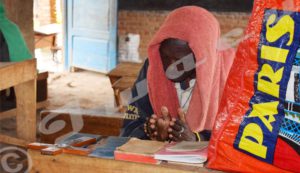
Most of them say they are ready to endure anything for the cause.
At around 6 pm, from the Ruhwa border post, where they were gathered waiting to be taken to Cibitoke High School for the night, the atmosphere of suspicion and anguish on their faces since their arrival dissipated little by little. Those from the bordering provinces of Cibitoke saw members of their families coming to take them home.
A mother and farmer from Giheta commune (Gitega province), with tears in her eyes, anonymously said she didn’t believe she would return home one day after the tragedy. “This is a time to dedicate myself to my family forever and regain the lost time.”
She joined Kamanyola leaving her youngest son aged 3. Filled with fear, she wondered if her child would still recognize her. “But I have to go and ask for forgiveness,” she said.
Same case for Victor Hitimana, also from Gitega province, in Yoba district (Gitega commune). After the Businde incident in 2013, he abandoned his family to join Zebiya in Kamanyola. A journey, he is in no way ready to undertake again, he said gently.
The contrast
A situation different from that of Kamariza and Caroline (pseudonyms as they refused to give their real names), both of them in their thirties. They are former teachers from Ngozi province. Although they are happy to be back in their families, they openly say they do not regret having joined Zebiya in Kamanyola. “We did it for the glory of God so that the good news might be spread in every corner of the country. If Hail Mary calls us again, we will go.”
At Mparamirundi Communal High School (in Busiga commune, Ngozi province where the refugees who passed through” Kanyaru haut” border had spent the night waiting to be brought back to their respective provinces, it was a total restlessness.
While waiting impatiently to return to their families, a hundred of those “Zebiya” followers swore by the Hail Mary. “It was her hand that protected us from all evil during our flight.Why should we leave her? We will always praise her, “insists Claude Nkamicaniye, a teacher from Mwaro province. For him, they are determined to endure everything on behalf of the Virgin Mary.
Is going back to square one absolutely guaranteed?
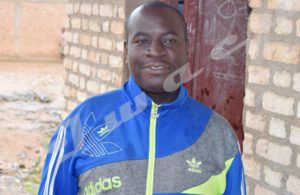
Joseph Nahimana: “Such behavior will be compared to the disturbance of public authority and incitement to revolt.”
Administrative authorities formally prohibited the gatherings of “Zebiya followers” in places of worship, especially in Businde. They made it clear in their speeches that whoever would dare to go against the order would be severely punished. “Such behavior will be compared to the disturbance of public authority and incitement to revolt”.
An offense punishable within the Penal Code “said Joseph Nahimana, administrator of Busiga commune.
It is in this sense, he explains, that once the repatriation certificate issued by the Ministry of the Interior has been submitted, the repatriated person will have to show an exemplary behavior so that they can be reinstated in their job.
The measures were decried by these followers. “Instead of always using force, the government should favor consensus and allow dialogue,” said Mr Ngendakumana. “Depriving us of freedom of worship while it is guaranteed by the Constitution is unfair”.
For farmers, the communal administrator says that while waiting for a new crop season, the Ministry of the Interior via its “Repatriation” project has provided assistance. “We will give them something to help them before the next tilling.”
For students, “The third trimester begins in a few days, they will have to wait for a new school year,” he says.
“Zebiya” followers revive tensions between Burundi and Rwanda
The government accuses Rwanda of attempting to enlist refugees from Eusébie Ngendakumana to join armed groups.”These maneuverings aimed at disrupting the referendum process.”
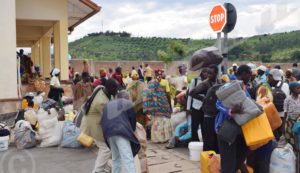
The followers of Eusébie Ngendakumana returned from Rwanda
The diplomatic quarrels between Burundi and Rwanda resumed. However, the Rwandan Foreign Minister had sent a diplomatic correspondence to her Burundian counterpart. Louise Mushikiwabo gave the reasons for the repatriation of these refugees. Rwanda could not tolerate the “unusual attitude” of these refugees.
The latter from Kamanyola in the DRC refused to comply with the laws of the host country. They refused, in particular, their biometric registration and vaccination of children under 5 years of age. The consultations carried out did not succeed. All that remained was the immediate repatriation of the recalcitrant.
The reasons were plausible. The refugees had adopted a similar behavior in the Democratic Republic of the Congo. Kamanyola-based UNHCR said it was “overwhelmed by their lack of cooperation and unwillingness to comply with the organization’s standards.”
Meanwhile, the Burundian government gives another version of the story. In testimonies on national television, these refugees speak of a vain attempt to enlist them by Rwanda to constitute a destabilizing force against Bujumbura government.
This Wednesday, April 4, the Secretary General of the government “strongly condemned this new attempt of destabilizing actions by Rwanda. The Burundian government talks about the recruitment of young Burundians into criminal activities. In addition, it demands the release of other refugees “taken hostage” by Rwanda.
In this release, the government says it found the motive for this new recruitment of Eusébie followers. “These maneuverings are only intended to disrupt the ongoing process of the constitutional referendum. It warns that “subversive elements will be doomed to failure as in previous attempts”.
The hatchet far from being buried
Bujumbura has since 2015 accused its neighbor of being among the instigators of the failed coup. Rwanda shelters the persons prosecuted for the attempted coup d’état.
Throwing grenades, armed attack, everything is attributed to Rwanda accused of feeding those who hope to overthrow the Burundian institutions.
The Burundian government each time refers to the report of the experts of the United Nations released in 2016 as well as that of the NGO Refugees International. In testimonies, Burundian refugees claimed to have “been recruited and trained by Rwanda in order to oust the Burundian President Pierre Nkurunziza.”
Kigali, for its part, has always denied these allegations. The Rwandan ambassador to the UN, Eugène Gasana, had rejected the work of UN experts who were conducting investigations in DRC. According to him, these allegations further undermine the credibility of the group of experts “who apparently seem to have extended their own mandate and investigations into Burundi.”


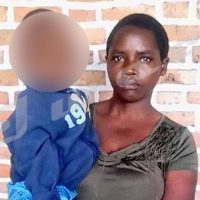
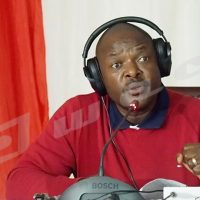
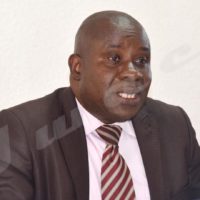
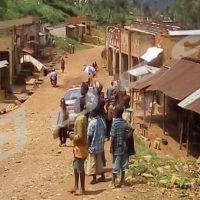













 IWACU Open Data
IWACU Open Data

